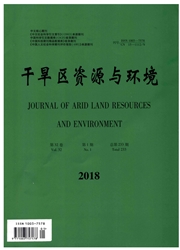

 中文摘要:
中文摘要:
以我国海绵城市建设为研究对象,以适应性为导向展开研究。通过对当前世界范围内城市雨水管理技术发展的多样性分析,和我国海绵城市建设过程中由于城市水问题复杂而导致的需求多样化两方面背景的分析,在技术层面提出基于功能主义的选择观,分析了低影响开发、水敏性城市设计、可持续排水系统等雨水管理技术的适应范围和侧重点;策略层面通过对海绵设施六大功能的整合,提出了"消纳、截留和利用"等三项关键性适应策略,并对海绵设施的功能与应用进行分类;实施层面从城市建设途径的角度提出了"保护、更新和新建"等适应性策略。
 英文摘要:
英文摘要:
The adaptability of sponge city was studied in the research. By analyzing the background of diversified technology in urban rainwater management and diversified demand in sponge city construction, we propose a utilitarian selection method based on functionalism in technical aspect, and analyzes the focus and the applicable range of low impact development, water sensitive urban design and sustainable urban drainage systems, we pro- pose 3 key strategies of " Elimination, Retention and Utilization" by combining the 6 functions of sponge city, and classifies the features and application of the sponge facilities. We also propose " Protection, Regeneration and Construction" strategies in urban construction aspect. The adaptation studies of sponge city are beneficial to improve capacity of solving city~ water crisis, and make clear the core of urban construction.
 同期刊论文项目
同期刊论文项目
 同项目期刊论文
同项目期刊论文
 期刊信息
期刊信息
